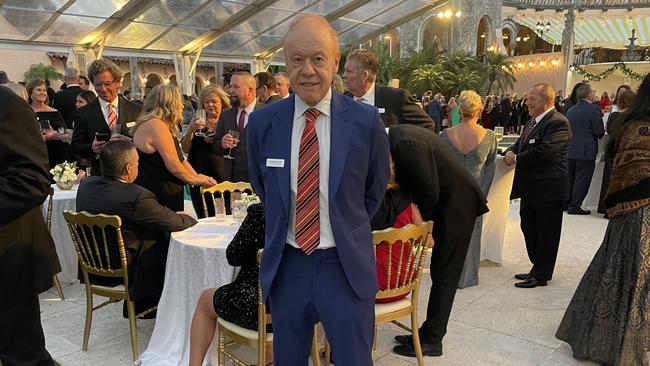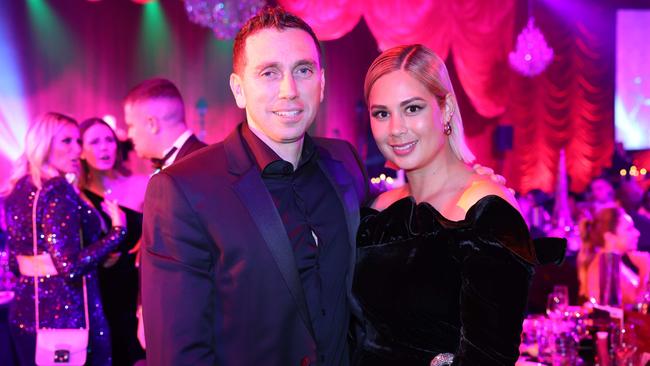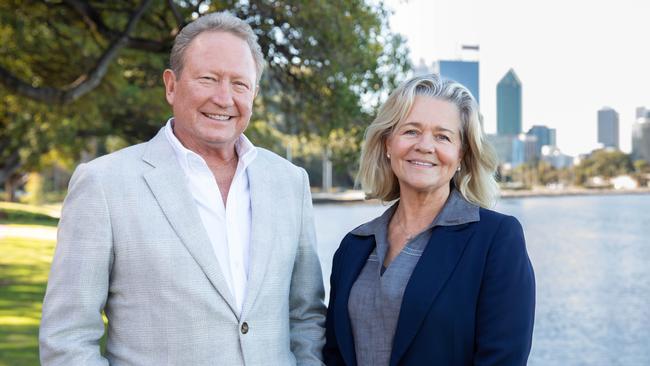As global markets tumble, astute investors are looking at opportunities
It’s well-worn but it is worth repeating Warren Buffett’s market advice to be greedy when others are fearful and to be fearful when others are greedy.

There weren’t many places to hide from the carnage wiping billions from the value of the sharemarket, and at the same time, smashing the wealth of the nation’s richest individuals.
It’s the biggest one-day loss since May 1, 2020, when the global coronavirus pandemic lit a fire of uncertainty that was so severe the estimated fortunes of our wealthiest entrepreneurs would gyrate by $1bn depending on the time of day you happened to look at their share holdings.
And so here we are again, minus the lockdowns.
It’s easy to panic. Especially when you focus on the scale of the losses. Especially, when it seems things will get worse.
But it’s those with the ability to keep a cool head that prevail. It’s the investors who reach for a cuppa over the vodka and think it through.
It’s well-worn but it is worth repeating Warren Buffett’s market advice to be greedy when others are fearful and to be fearful when others are greedy.
It was only in February the legendary US investor was forced to defend Berkshire Hathaway’s cash pile as markets continued on their bull run. Berkshire had been selling, amassing a record $US334bn in hard cold cash.
Now global markets are on sale. And cash is king.
Make no mistake, some of Australia’s most astute investors and business builders are not rushing around their offices wailing like babies. They are sitting back and working out the arbitrage.
Just as fortunes can easily crumble, bigger fortunes can also be forged.
Take for instance Anthony Pratt, whose family is one of the country’s richest with an estimated wealth of $28.6bn.
Over the past few years Pratt, a Trump supporter, has been spearheading a push into the US. Such is his appetite for the American dream that he’s relocated to the US to continue to drive his business interests there. The US expansion involves making paper and boxes for the US market in the US. Guaranteed tariff immunity.

And for Visy Australia, well, it may just win too. China’s return fire with tariffs on US products, plus a weaker Australian dollar, could make Australian paper exports to China more competitive.
Simon Beard, who along with his wife Tah-nee, founded streetwear retailer Culture Kings that enjoyed such success the pair graced the pages of the Richest 250 List. These days they’re worth about $500m.
Beard is no longer at the helm of Culture Kings, which was bought by a.k.a Brands as part of plans to expand the business into the US. He remains a shareholder and he’s been watching events closely.
“There isn’t a manufacturing loophole other than to make it in America but you can’t make it in America, it’s impossible,” he says when asked if making sneakers, for instance, could move from factories in Asia and on to US soil.
It’s not that America, the home of Air Jordans, wouldn’t know how to make a sneaker.
Beard argues it’s because manufacturing in China has become so advanced. It’s all automated. It’s all robots. It’s hard to picture a renaissance in blue-collar jobs among the potential manufacturing resurgence.
“It will cause massive chaos and disruption,” Beard argues.
Beard’s personal fortune has dipped. He’s still got shares in a.k.a Brands via a cash-and-scrip deal he cut in 2021.
Is he panicking? No chance (it helps he took around $300m in cash via the deal). Beard is sitting back assessing the opportunity. The way he sees it, there’s opportunity for younger, smaller brands. They’re more able to pivot, to adapt and quickly lower their cost base compared to what he describes as “dinosaurs with legacy systems”.
And could there be, he wonders, American shopping tourism as a by-product? Americans who leave the US and buy cheaper products and stuff them in their suitcases to take home?
It’s worth noting that one of the top gainers on the market on Monday was Reece Limited, a group controlled by the billionaire Wilson family. They’ve maintained control since 1969. They’ve seen a few market cycles.

When Donald Trump imposed global tariffs, Reece shares were caught up in the instant sell-off. After all, the plumbing business generates about 39 per cent more revenue in Australian dollar terms than its local operations.
Reece finished Monday up 3.65 per cent, leaving the shares around 4 per cent below their trading price before the US trade tariffs were unleashed.
Investors are scouring for safe places to hide. And anything that looks remotely risky isn’t the place anyone wants to be bunkering down.
It’s businesses caught in the crossfire that will feel the squeeze of debt and capital markets.
This is not the time for a stretched balance sheet or a corporate reputational crisis.
So it was little surprise some of the biggest losses from the nation’s wealthiest entrepreneurs came from under-fire stocks.
Embattled Mineral Resources founder Chris Ellison has lost $145m from his personal fortune (valued at $1.24bn last month) since Thursday, or roughly $50m per trading day. The market ructions accelerate a share price slide that over the past six months has wiped more than $800m from his personal fortune.
The volatility will continue until investors can feel more confident about how global economies will respond to tariff upheaval.
There have been hefty falls for some of the nation’s wealthiest.
Andrew and Nicola Forrest’s Fortescue holding is worth $1bn less than a few days ago, while the fortunes of Greg Goodman (Goodman Group) and Gerry Harvey and Katie Page (Harvey Norman) have sunk by around $140m.
Yet, it’s probably worth looking back at the wealth of the nation’s top 250 people over time, rather than a three-day period.
The value of the Richest 250 in 2020 sat at a collective $377.7bn, a figure ruled off before the pandemic put a wrecking ball through valuations.
So what was the total a year later? $470.07bn.
This year the nation’s richest 250 were collectively worth an estimated $689.52bn.
With fear and volatility comes opportunity and the potential for fresh fortunes.





To join the conversation, please log in. Don't have an account? Register
Join the conversation, you are commenting as Logout